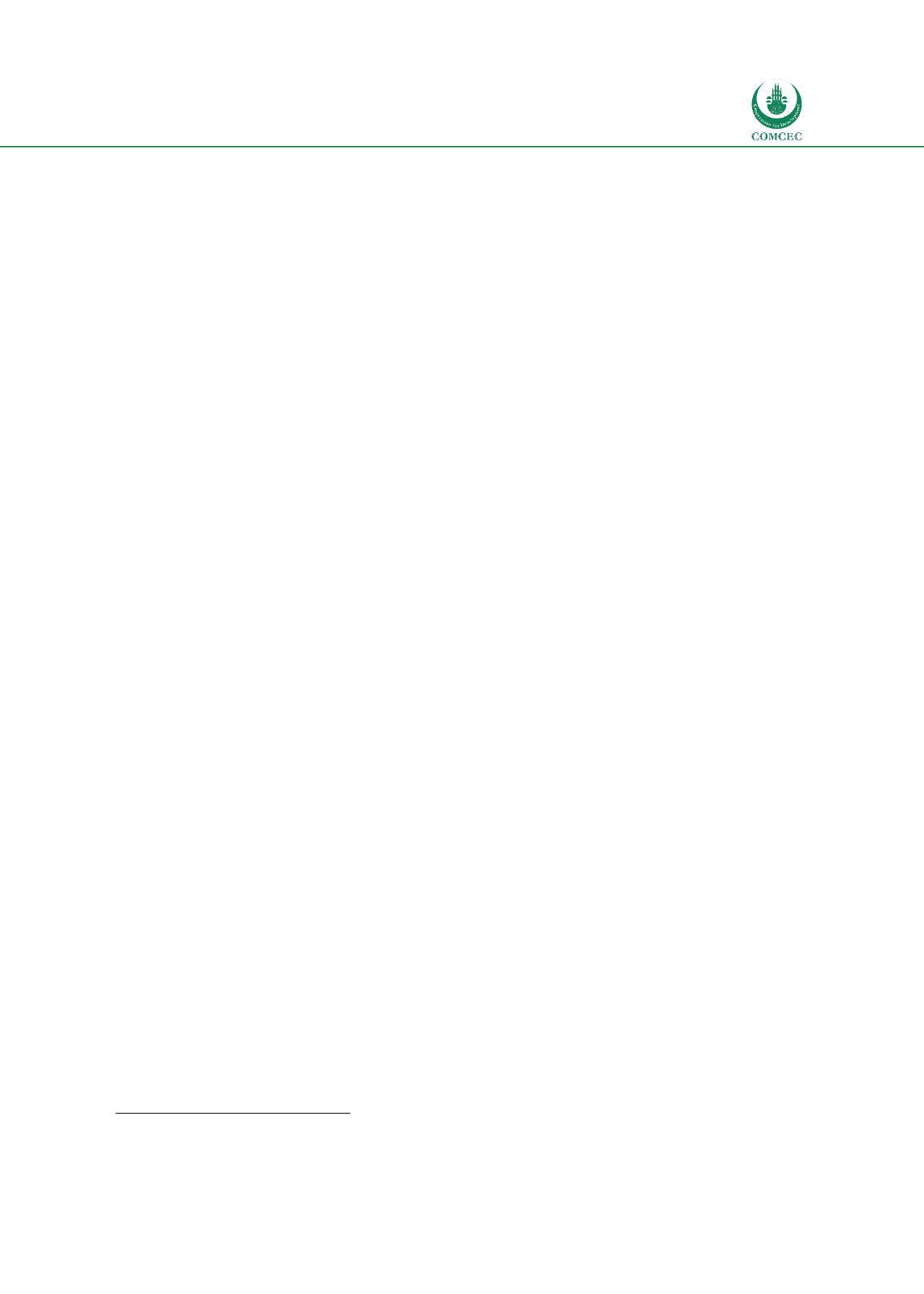

National and Global Islamic Financial Architecture:
Prolems and Possible Solutions for the OIC Member Countries
61
There are limited Islamic financial instruments and relatively inactive secondary market for
trading Islamic short-term Islamic financial securities. BB issued a Guideline on Islami
Interbank Fund Market (IIFM) on 27 December 2011 (BB 2011). As indicated, Islamic banks
have taken the initiative to establish an interbank Islamic money market with the
encouragement of BB.
BB has taken three initiatives to provide a liquidity management infrastructure for the Islamic
banks. The requirement of maintaining the SLR (including CRR) still remains well below at
12.5%, compared to the requirement of the conventional banks (19%). The introduction of the
Bangladesh Government Islamic Investment Bond (BGIIB) was the beginning of providing a
cushion for the Islamic banks to park their excess liquidity by using it as a vehicle to maintain
the required amount of SLR. There are however no Shariah complaint lenders of the last resort
facilities for Islamic banks (IFSB 2014).
4.1.5. Information Infrastructure and Transparency
Accounting and Auditing Framework/Transparency and Disclosure
The Institute of Chartered Accountants of Bangladesh (ICAB) is the national professional
accounting body responsible for regulating the accounting profession in the country. Among
others, ICAB issues the Bangladesh Accounting Standards (BFRS) in line with International
Accounting Standards (IAS).
Bangladesh Bank Guidelines for Conducting Islamic Banking requires that licensed Islamic
financial institutions should maintain proper accounting standards and prepare financial
statements that can be conveniently audited. It provides the framework that Islamic banks can
use to comply with the different laws of the country (BCA 1991 and Companies Act 1994), the
IFRS and also the AAOIFI. While Islamic banks are required to comply with the disclosure
requirements of the Securities and Exchange Rules of 1987 and the Listing regulations of the
Dhaka and Chittagong Stock Exchanges, they are also required to adjust their financial
statements according to the IFRS.
21
The Guidelines, however, do not address the necessary
adjustment of financial transactions that is required to comply with the requirements of the
International Financial Reporting Standards (IFRS). So, reporting institutions are required to
adjust their Financial Statements as per their own requirements.
Rule 12(2) of the cited Securities and Exchange Rules prescribing compliance with the
International Accounting Standards (IAS) states that 'The financial statements of an issuer of a
listed security shall be prepared in accordance with the requirements laid down in the
Schedule and in the International Accounting Standards as adopted by the Institute of
Chartered Accountants of Bangladesh (ICAB)". It is also to be noted that in case the
requirements of the guidelines and circulars issued by the Bangladesh Bank differ with those
of other regulatory authorities and financial reporting standards, the guidelines and circulars
issued by the Bangladesh Bank prevail. The Guidelines for Islamic Banking 2009 give details on
the modalities of specimen reporting formats and Financial Statements for Banks operating
under Islamic Shariah. It also stipulates that the BB may specify standards related to
transparency and disclosure requirements that entail information that is accurate, clear, timely
and not misleading.
21
BB (2009), Appendix II.
















